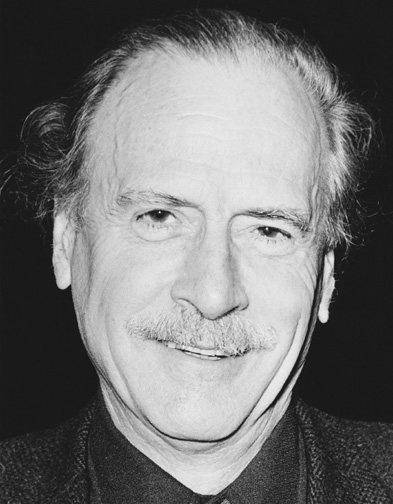We were in Kerry a few weeks ago when I was giving the opening Keynote at the IIUG annual conference in Tralee. Afterwards we went for a walk on the beach at Inch — and had tea in the charming cafe (run by an Egyptian: how cosmopolitan is that!). This picture was taken in very demanding conditions because of the discrepancy between the darkness of the interior and the brightness outside. What’s impressive is how the HDR Pro App for the iPhone deals with it.
The iPad and time-shifted reading
Fascinating TechCrunch post by Erick Schonfeld on how the iPad changes people’s reading habits.
One of the reasons bookmarking apps like Read It Later and Instapaper are becoming so popular is because we are inundated with news and interesting links all day long, but have no time to read them. But just as DVRs helps us shift our TV viewing to better fit our own schedules, these apps helps us time shift our online reading. And according to some data put out earlier this month by Read It Later, it looks like the iPad is becoming the time-shifting reading device of choice.
Read It Later offers a bookmarklet which enables one to ‘save’ a Web page for offline reading on an iPad. The people who run the service surveyed the bookmarking habits of its users over the course of a day. The rate of bookmarking was pretty uniform in the period 7am – 6pm but drops off sharply after 9pm. They then looked at when iPad users read the articles they have saved and found that the time reserved for reading is shifted all the way to the right, with the sweet spot being between 7 PM and 11 PM at night. This suggests, they say, that “iPad usage is competing with primetime TV for people’s attention (or that they watching TV with iPad in hand, or shifting their TV viewing to other times).”
This is intriguing — and squares with my own experience. Instapaper is one of the Apps I use — and value — most.
Feline illusion
Not what it seems. See here for the full picture.
Thanks, Marshall, I think we’ve finally got the message…
This morning’s Observer column.
“A prophet is not without honour”, says the Bible, “save in his own country.” This was manifestly not true in the case of Marshall McLuhan, the Canadian cultural critic, who was born 100 years ago last Thursday, and was famous not only in his own country, but also abroad. In fact, he’s the only public intellectual I can think of who played himself in a Woody Allen movie.
Film buffs will recall the wonderful sequence in Annie Hall, where Woody and Diane Keaton are queuing for a movie when a guy behind them starts opining pompously about McLuhan’s description of television as a “high intensity or hot medium”. Allen expresses to camera a desire to have a large sock full of horse manure close to hand, whereupon the guy asserts his right to express his opinion on the grounds that he teaches a course at Columbia on “TV, media and culture”, a fact that – he asserts – gives his views on McLuhan a great deal of validity.
“That’s funny,” replies Woody, “because I happen to have Mr McLuhan right here.” He goes over to a flipchart and pulls out the great man himself from behind it. “I heard what you were saying, “says McLuhan to the Columbia man. “You know nothing of my work… how you ever got to teach a course in anything is totally amazing.” The scene closes with Woody saying to camera: “Boy, if life were only like this.”
As it happens, there have been many times in the past few years when it would have been useful to have had McLuhan to hand because, in a strange way, his insights into media seem more relevant now than they were in the 1960s when he sprang into prominence…
See also this post.
Blue remembered hills
The view from Tourtour.
Le petit dejeuner
First Provencal breakfast this year!
The Messenger and the Medium
Today is the centenary of Marshall McLuhan’s birth. He’s one of those thinkers who is so famous that everyone thinks they know what he stood for, but I guess that most people, if pressed, can only quote (or misquote) one of his aphorisms — “the medium is the message”, and the phrase “the global village”.
McLuhan lived — and wrote — in an age dominated by broadcast television, but, oddly enough, his thinking seems much more relevant to our current networked media environment.
There’s an awful lot of stuff about him on the Web (and in libraries), but IMHO the best and most insightful commentary is by Tom Wolfe in this terrific 22-minute video.
If you do nothing else today, make a cup of coffee and watch it.
Among its many merits is the insightful way Wolfe dissects the two biggest influences on McLuhan’s thought: the work of Harold Innis; and the ideas he drew from the French mystic Teilhard de Chardin, the guy who coined the term “noosphere”. And if you’re puzzled by what all this has to do with the Net, can I remind you of Eric Raymond’s fascinating essay, “Homesteading the Noosphere”?
Woolfe clarifies one of the great mysteries of McLuhan’s writings: why was he so punctilious in crediting Innis as a source of inspiration, while at the same time being entirely reticent in acknowledging the influence of de Chardin on his thinking? The answer, it seems, lies in the fact that McLuhan was a devout Catholic who taught in a Catholic university; and despite the fact that de Chardin was a Jesuit priest, his belief in evolution meant he was persona non grata with the Vatican; and because he was seen by the secular world as a mystic, he was persona non grata in academia. In this case it looks as though McLuhan took the path of least resistance.
My Observer column on Sunday will also be devoted to McLuhan.
The case against the Digger — by the Digger
Craig Murray nails it.
By their own admission, the Murdochs’ media empire is too large for effective corporate governance. The fact that Rupert, James and Rebekah claim they had no idea who authorised thousands of illegal phone hacks, and had no idea who authorised tens of thousands of pounds of bribes to policemen, and still say they have no idea even after all the hullabaloo, is positive proof that such concentrations of media ownership become unaccountable and should be banned by law.
They are condemned from their own mouths, by the line of defence they have chosen. Whether it is true or not doesn’t matter in terms of the policy that must be adopted – the prevention of multiple media ownerships.
Yep.
Apocalypse soon
Yeah, I know that #hackgate is important and interesting, but actually it’s very small beer compared to the looming catastrophe of a US debt default. Here’s Will Hutton’s take on it.
When President Obama, the supreme rationalist, says that there are just days to avert Armageddon, everyone should sit up and listen. For months, Republicans have used their new majority in the House of Representatives to block any move to lift the artificial cap on the amount the US government can borrow. If by this Friday they still refuse – insisting on up to $4trillion of spending cuts, excluding defence, and no tax increases as the price of their support – then the US will be unable to service its public debts. The biggest economy on Earth will default.
The results will be catastrophic, argues JP Morgan chief executive Jamie Dimon – a warning repeated by Obama. The US government will have to start to wind down: soldiers’ wages and public pensions alike will be suspended. But in the financial markets there will be mayhem. Interest rates will shoot up and there will be a flight from the dollar. Banks, uncertain about their expected income from their holdings of US Treasury bonds and bills, will call in their loans, creating a second credit crunch. Some may collapse. Even to get days away from such a prospect, says Obama, will now have costs: every creditor to the US has been shaken to the core by American politicians not taking their responsibilities as borrowers seriously. They will exact a higher price for lending in future, even if a bargain is struck now.
The prospect of a US default in early August is so apocalyptic that many people cannot believe that such a thing will happen. What they haven’t reckoned with is a Republican party in Congress manned by people who make Islamic fundamentalists look like Spinoza.
If the US defaults, we’re all screwed. Period.
See also: “Voodoo Economics Rules OK”
The smartphone challenge
This morning’s Observer column.
My favourite line in the film A Fish Called Wanda comes when Otto (Kevin Kline), a psychopathically idiotic ex-CIA operative, objects to being called “stupid” by Wanda (Jamie Lee Curtis). To which Wanda replies: “To call you stupid would be an insult to stupid people! I’ve worn dresses with higher IQs.”
Until relatively recently, “dresses” could have been replaced by “mobile phones” in the script, and the line would still have raised a laugh. But that’s changing fast. Quite how fast was revealed last week in an extraordinary report from the Pew Internet and American Life Project. … The Pew report found that 35% of American adults now own a ‘smartphone’, that is to say a mobile phone with a significantly more powerful processor and much better internet connectivity than an old-style handset which could do voice and text and not much else…





